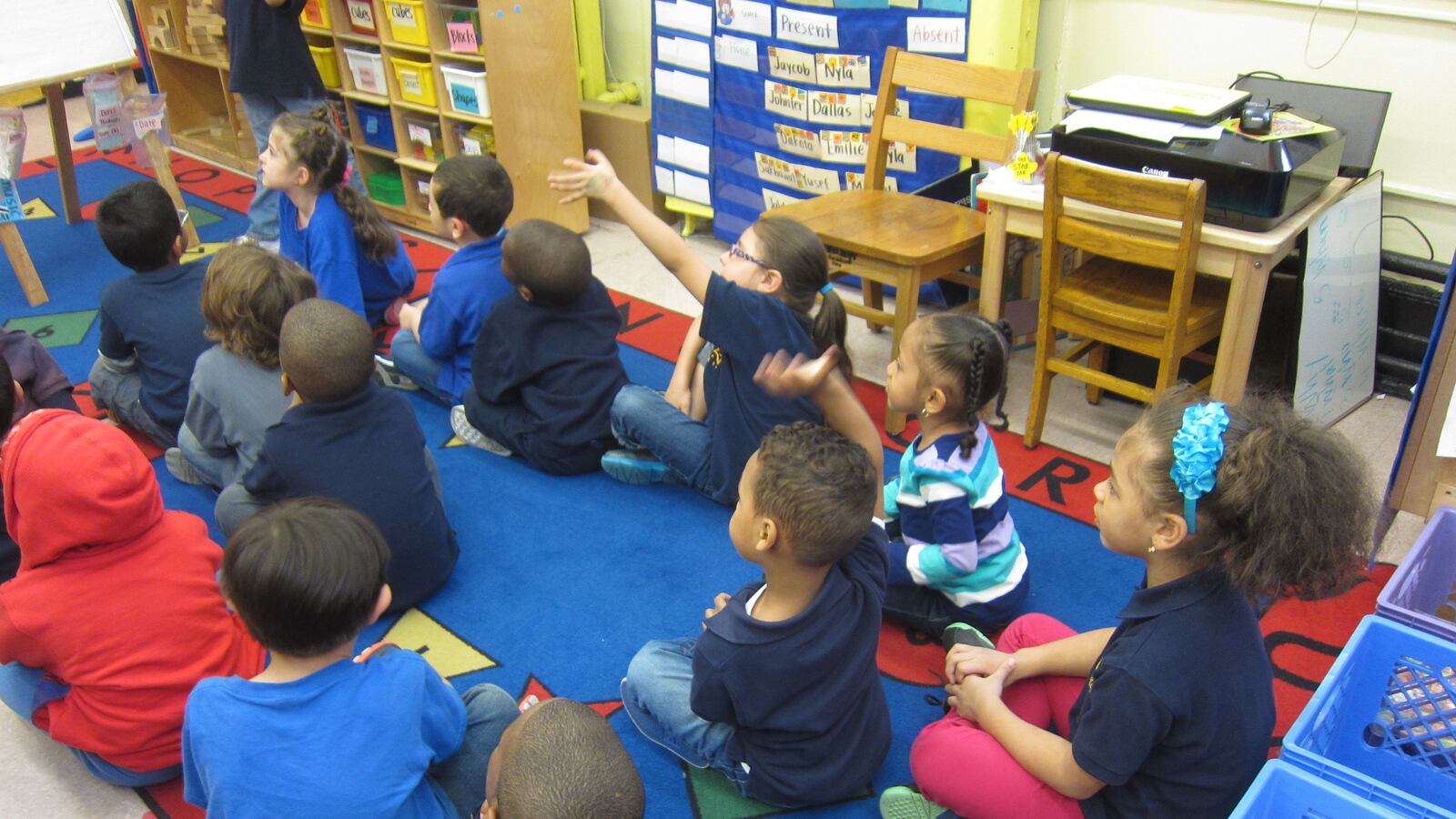Six charter schools will offer pre-kindergarten classes for the first time next year, and will be able to keep those students for kindergarten, solving a key concern of charter leaders.
Together, the six schools will serve only 198 pre-K students, according to the New York City Charter School Center. That’s a tiny fraction of the city’s total charter school enrollment, and a reflection of a short application period and lingering questions about facilities and enrollment. Now, most of the approved schools say they now have the answers they need and are focused on attracting students.
Five of the schools – Academic Leadership Charter School, Bronx Charter School for Better Learning, Hellenic Classical School, Renaissance Charter School and Rochdale Early Advantage Charter School – are just waiting on final funding approval, set for a vote by the Panel for Educational Policy later this month. Montessori Charter School was given the green light in June.
State law requires charter schools to accept their students through a lottery, and that won’t change for pre-K students. But students attending pre-K at a charter school will have enrollment preference to return to “automatically” feed into the school’s kindergarten the next year, according to guidance from the state.
Stacey Gauthier, principal at the Renaissance Charter School in Jackson Heights, said not being able to retain those students may have been a dealbreaker, and now that the policy is clear, she’s excited to have students starting at the school at a younger age.
“It helps to start them off on the right foot. The pre-K program will be very experiential,” Gauthier said. “They’ll get into very good habits and learning to work with other students.”
Gina Sardi, who heads the Montessori Charter School, which was approved for 52 pre-K seats last month, said without that guarantee, the school would not have started a pre-K program either.
The schools have slowly learned more information about different requirements they will have to meet and tasks they must complete before school starts in the fall, she added, noting she’d received emails with more information nearly every week this summer.
“The answers have been trickling in,” she said. “We’ve had information sessions, and basically those were so that they could gather the questions they needed to ask.”
Charter schools learned they’d be able to apply for state funding for pre-K in late April, but faced a short turnaround to put forth plans, which stopped many from applying. The city extended the deadline twice to give charter schools a chance to have policy questions answered—including whether they would need to revise their charters, which spell out how many students the school plans to serve.
In mid-June, the State Education Department told schools they would not need to revise their charters, though New York City Charter Center CEO James Merriman said his organization is urging schools to communicate with their authorizers about whether they should amend those documents.
“No one can argue that this doesn’t contribute to the number of children served,” he said.
With answers to those questions in hand, many of the schools are ramping up their preparation efforts. Gauthier said her school has already hired a pre-K teacher, and has shuffled classrooms so that the 18 new students are in a classroom that fits state regulations. Now, she’s working to outfit the classroom and prepare a curriculum.
Shubert Jacobs, principal at the Bronx Charter School for Better Learning, said the school had leaned on the leader of its Jump Start program, which trains early education teachers, to guide their preparation process.
Their new pre-K class will include 18 students, less than its kindergarten class which has 80. The Jump Start team has helped the school to create its pre-K curriculum, outfit a classroom and work on a budget, Jacobs said.
But Hellenic Classical Charter School is still looking to hire its pre-K teacher and a teaching assistant, and is locating a space for the classroom. The school has planned an open house for potential families, as well as set a date for its application deadline and lottery.
“I think we’re moving forward beautifully,” said Christina Tettonis, the school’s principal.
That work is made possible because lawmakers removed some funding barriers that kept charter schools from offering pre-K in the past. A few charter schools and charter management organizations, like Harlem Children’s Zone, have run programs through community-based organizations.
Eleven charter schools applied to offer programs directly this year, and none of those were a part of the city’s largest networks. Merriman said he expected those numbers to change as schools use more time to prepare.
“Everything tells me that we’re going to see a lot more schools applying in 2015,” he said.
Sarah Darville contributed reporting.

